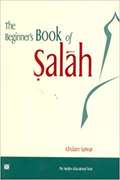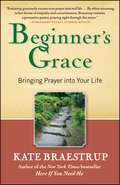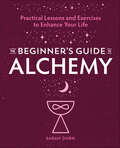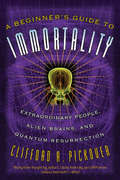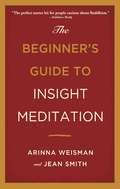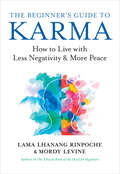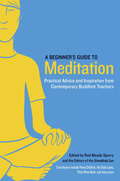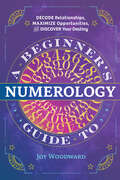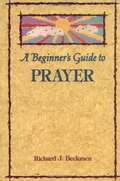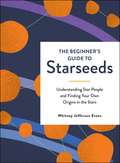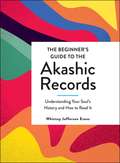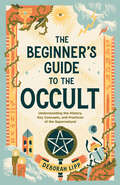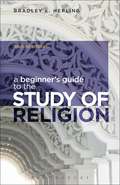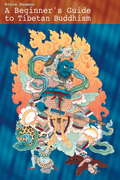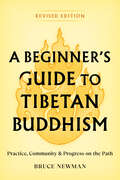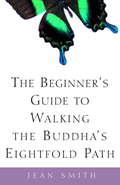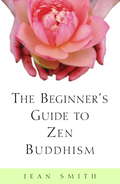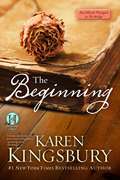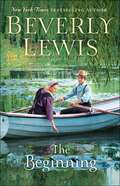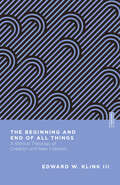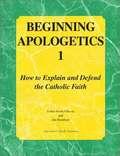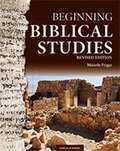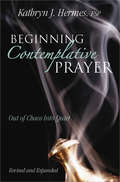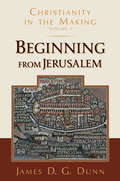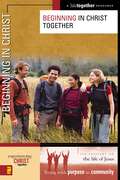- Table View
- List View
The Beginner's Book Of Salah
by Ghulam Sarwar Muslim Educational Trust StaffThe important pillar of Islam, Salah (daily prayers) is explained in detail in this invaluable book. The aim is to acquaint young Muslims with the knowledge necessary to be able to perform this vital act of worship. The author sets out to achieve this with the use of diagrams, pictures, Arabic text and English transliteration. The intended age range is 10-16, although older people may also find it a useful aid to learning. This work, while suitable for young Muslims, is ideal for adults as a summary of the important features of salah (daily Muslim prayer). Attractively laid out with charts and pictures, the Arabic text is transliterated. The Children's book of Salah explains the necessary details of the second basic duty of Islam-As-Salah. It aims to acquaint young Muslims with the knowledge of how to perform Salah. In addition to the five daily Salah, there are chapters on Salah for special occasions, eleven Surahs of the Qur'an, and a selection of Qur'anic verses on Ma'ruf and Munkar. This book should be useful for young English-speaking Muslims, as well as those new to Islam. The important pillar of Islam, Salah (daily prayers) is explained in detail in this invaluable book. The aim is to acquaint young Muslims with the knowledge necessary to be able to perform this vital act of worship. The author sets out to achieve this with the use of diagrams, pictures, Arabic text and English transliteration. The intended age range is 10-16, although older people may also find it a useful aid to learning. Formerly titled 'The Children's Book of Salah' Based primarily on the Hanafi school of Islamic law, with mentions of other schools in some portions.
Beginner's Grace: Bringing Prayer to Life
by Kate BraestrupPrayer is an ancient and simple way to prepare yourself for grace, or love, and to learn to recognize it when it comes. Even the briefest "grace" spoken before dinner offers its time-honored wisdom. Yet in spite of hundreds of traditions and teachings and books about prayer, millions of Americans have become ambivalent about it. They are unsure how, when, where, and even why they might pray, afraid they’ll do it wrong, or worried that they won’t be heard. Writing in the beautiful, funny, honest narrative style that moved and inspired readers of her first book, Here If You Need Me, Kate Braestrup explains what prayer is and the many ways we can pray. With an approach that is both personal and inclusive, Beginner’s Grace is a new kind of prayer book. Even if you don’t pray and don’t consider yourself religious, there’s room in this book for you. In these pages, Braestrup explains how and why the practice of prayer can open a space in our busy lives for mindfulness, gratitude, contentment, and a wider compassion toward others. Inspired by her work as a chaplain, Braestrup includes many examples of prayers to draw from—beginning with grace, a brief prayer of thanks. She provides clear models and practical suggestions for making your own and your family’s prayers meaningful and satisfying, and offers prayers for situations in which words might fail: times of anxiety, helplessness, or grief. And she invites you to explore forms of prayer that extend into the wider community, including prayer with and for people we don’t like or with whom we disagree. A welcoming modern guide to the simplest, most effective way to satisfy a universal spiritual hunger, Beginner’s Grace is for the religious and nonreligious and even irreligious in its generous, good-humored approach to spirituality. With its insight and warmth, Beginner’s Grace is sure to become a spiritual touchstone for people of all faiths
The Beginner's Guide to Alchemy: Practical Lessons and Exercises to Enhance Your Life
by Sarah DurnTransform Your Mind and Soul to Find Your Highest Self There's a lot more to alchemy than turning lead into gold. Alchemists are committed to not only the transformation of actual substances with elements but also the transformation of themselves. This beginner's guide teaches you how to refine the baser parts of yourself (such as your fears, doubts, and anger) and take steps to uncover your truest, enlightened self.Know Your History—Learn all about alchemy's roots and basic principles, including its three primary facets: physical, spiritual, and mental.Discover Who You Are—Insightful activities and introspective journaling exercises make alchemy accessible.Expand Your Learning—Explore illustrated vignettes on notable alchemists, like Nicolas Flamel and Christina of Sweden, along with charts on the Ladder of the Planets and their corresponding elemental associations.Bring positive change into your life with the transformative powers of alchemy in this beginner's guide.
A Beginner's Guide to Immortality: Extraordinary People, Alien Brains, and Quantum Resurrection
by Clifford A. PickoverA Beginner's Guide to Immortality is a celebration of unusual lives and creative thinkers who punched through ordinary cultural norms while becoming successful in their own niches. In his latest and greatest work, world-renowned science writer Cliff Pickover studies such colofrul characters as Truman Capote, John Cage, Stephen Wolfram, Ray Kurzweil, and Wilhelm Rontgen, and their curious ideas. Through these individuals, we can better explore life's astonishing richness and glimpse the diversity of human imagination. Part memoir and part surrealistic perspective on culture, A Beginner's Guide to Immortality gives readers a glimpse of new ways of thinking and of other worlds as he reaches across cultures and peers beyond our ordinary reality. He illuminates some of the most mysterious phenomena affecting our species. What is creativity? What are the religious implications of mosquito evolution, simulated Matrix realities, the brain's own marijuana, and the mathematics of the apocalypse? Could we be a mere software simulation living in a matrix? Who is Elisabeth Kübler-Ross and Emanuel Swedenborg? Did church forefathers eat psychedelic snails? How can we safely expand our minds to become more successful and reason beyond the limits of our own intuition? How can we become immortal?
The Beginner's Guide to Insight Meditation
by Jean Smith Arinna WeismanThe Beginner's Guide to Insight Meditation offers advice about going on retreat and help in choosing a teacher and a sangha (practice community), as well as suggestions for further reading and information on various Insight Meditation or Vipassana centers and resources. Here is an enormously practical book that covers every aspect of the teachings a beginner needs to get started.
The Beginner’s Guide to Karma: How to Live with Less Negativity and More Peace
by Lama Lhanang Rinpoche Mordy LevineTwenty-six centuries ago, the Buddha fleshed out the universal law of the spiritual realm: karma, which holds that our actions, our words, and even our thoughts inevitably produce effects that return to us in some form — in this lifetime or a future one. In The Beginner’s Guide to Karma, Lama Lhanang Rinpoche and Mordy Levine encourage readers to forget what they’ve heard about karma and look at the subject afresh. Delving into Buddhist scripture and tradition, the authors give a comprehensive overview that incorporates psychology, ethics, and metaphysics. Using everyday language and real-life examples, they clear away myths, illustrate how karma works in daily life, and offer practices to build positive karma. The Beginner’s Guide to Karma neatly sums up the Buddhist worldview and makes a compelling case for a way of being that nurtures compassion, joy, and inner peace in an uncertain world.
A Beginner's Guide to Meditation: Practical Advice and Inspiration from Contemporary Buddhist Teachers
by Pema Chodron Thich Nhat Hanh editors of the Shambhala Sun Sakyong Mipham Rod Meade SperryAs countless meditators have learned firsthand, meditation practice can positively transform the way we see and experience our lives. This practical, accessible guide to the fundamentals of Buddhist meditation introduces you to the practice, explains how it is approached in the main schools of Buddhism, and offers advice and inspiration from Buddhism's most renowned and effective meditation teachers, including Pema Chödrön, Thich Nhat Hanh, the Fourteenth Dalai Lama, Sharon Salzberg, Norman Fischer, Ajahn Chah, Chögyam Trungpa Rinpoche, Shunryu Suzuki Roshi, Sylvia Boorstein, Noah Levine, Judy Lief, and many others. Topics include how to build excitement and energy to start a meditation routine and keep it going, setting up a meditation space, working with and through boredom, what to look for when seeking others to meditate with, how to know when it's time to try doing a formal meditation retreat, how to bring the practice "off the cushion" with walking meditation and other practices, and much more.
A Beginner's Guide to Numerology: Decode Relationships, Maximize Opportunities, and Discover Your Destiny
by Joy WoodwardYou've been surrounded by numbers since the day you were born—now use them to unlock your destinyYou're surrounded by numbers from the day you're born. Every name, date, and numerical pattern in your life holds hidden meaning and spiritual significance. Numerology is a tool to help you understand these numbers—a way of learning about yourself and the important people in your life.A Beginner's Guide to Numerology is the perfect book for those new to numerology. This fun guide will teach you how to decode the important numbers in your life, and the lives of your friends and family, to sharpen your intuition, improve your relationships, and boost your confidence.A Beginner's Guide to Numerology is a quick, easy read that includes:Numerology basics—You don't need to do complex math to learn numerology. The system only requires simple adding and reducing to a single digit, and you'll learn how.Your core numbers—Using your name and birthdate, you'll calculate your Core Profile. These defining numerology factors will help you better understand yourself and your destiny. You'll also dive into your Personal Years, Months, and Days to help you make better decisions and plan for a better future.Tips for bringing it all together—Learn how to apply your newfound numerical knowledge to improve every area of your life, including your relationships with family, friends and co-workers.Order A Beginner's Guide to Numerology to make the most of your life, opportunities, and relationships by unlocking the power in numbers.
A Beginner's Guide to Prayer
by Richard J. BeckmanWeaves Jesus' practice and teaching about prayer, other biblical examples, and experiences of people today.
The Beginner's Guide to Starseeds: Understanding Star People and Finding Your Own Origins in the Stars
by Whitney Jefferson EvansDiscover the nature of the mysterious, spiritually potent starseeds—intuitive people who help change the world—with this easy-to-read and accessible beginner&’s guide!Explore the ancient new age concept of starseeds, spiritually advanced people with strong psychic abilities sent to help the earth heal, grow, and change. The Beginner&’s Guide to Starseeds offers a look at who starseeds are and where they come from, as well as their innate skills and spiritual sensitivities. You will gain fascinating insight into the unique personalities and nature of starseeds and even figure out if you&’re a starseed, too! Perfect for anyone hoping to change the world or curious about different dimensions, this book is an illuminating and enlightening look at life on a higher plane of existence.
The Beginner's Guide to the Akashic Records: Understanding Your Soul's History and How to Read It
by Whitney Jefferson EvansUnlock the mysteries of your soul with this accessible, easy-to-understand guide to the Akashic records.Explore the vast reaches of the Akashic records from the comfort of your couch with this quick and easy guide to our &“soul&’s library!&” In The Beginner&’s Guide to Akashic Records you will explore the basics of the Akashic records, including what they are, where they can be found, and how you can read them to better understand your true self. This book will help you discover the historical record of your soul throughout your life experiences, and learn about other destinations in the astral field. Learn more about yourself—and your soul—than ever before with this enlightening and spiritual guide.
The Beginner's Guide to the Occult: Understanding the History, Key Concepts, and Practices of the Supernatural
by Deborah LippDiscover the secret world of the occult The occult is an ancient field of supernatural study that was formed to help unravel the mysteries of the universe. The Beginner's Guide to the Occult helps you explore some of these mysteries for yourself, with simple explanations of different occult practices and their fascinating history. This guide is designed for any beginner who seeks to learn more about the occult and answer big questions about human nature as well as natural phenomena like the sky, the stars, and the Earth. A modern approach—Begin with an overview of the key history and beliefs of occult philosophy and how it gave rise to contemporary sciences like chemistry and meteorology. Occult philosophy—Explore different branches of occultism, from numerology to witchcraft, and see how they're all interconnected. Try it for yourself—Find a collection of spells and techniques—like horoscopes and healing rituals—that you can use to get your own occult practice brewing. Step into the supernatural with this beginner's guide to the power of the occult.
A Beginner's Guide To The Study Of Religion
by Bradley L. HerlingHow should we understand and interpret the strange but familiar thing that we call "religion"? What are the foundations of a methodical approach to this subject, and what theoretical tools are available to students who are new to this area of inquiry? A Beginner's Guide to the Study of Religion provides an accessible, wide-ranging introduction to theories and basic methodology in the field. Now in its second edition and updated throughout, this concise but comprehensive book includes:- - A case for the urgency and relevance of studying religion today - Discussion of the role and perspective of the student of religion - Description of the nature of theory and its function - An accessible survey of classic theorists in the modern study of religion - Feature boxes highlighting essential quotations and guiding principles for application of theories An expanded consideration of contemporary issues in the field, including gender, sexuality, race, ethnicity, globalization, violence, science, and new media. - Recommended further reading A Beginner's Guide to the Study of Religion offers a thorough but concise body of material suitable for introductory courses on the study of religion, or to provide theoretical context for survey courses. Study questions and worksheets can be found on the book's webpage.
A Beginner's Guide to Tibetan Buddhism
by Bruce Newman"This is a ground-level, practice-oriented presentation of Tibetan Buddhism--personal and very accessible. The book begins with the awakening of students' interest in spirituality and the initial encounter with Tibetan Buddhism, then leads us through all the steps necessary for successful practice in the West. Included is succinct counsel on finding an appropriate teacher, receiving empowerments, becoming active in a center, and launching and sustaining a Vajrayana practice. Special emphasis is placed on the potential pitfalls, and the marvelous benefits, of the guru-disciple relationship. "
A Beginner's Guide to Tibetan Buddhism: Practice, Community, and Progress on the Path
by Bruce NewmanUncover the nature of the mind with this ground-level, practice-oriented presentation of Tibetan Buddhism. A personal and accessible guide to establishing progress on the path.The book begins with the awakening of students' interest in spirituality and the initial encounter with Tibetan Buddhism, then leads us through all the steps necessary for successful practice in the West. Included is succinct counsel on finding an appropriate teacher, receiving empowerments, becoming active in a center, and launching and sustaining a Vajrayana practice. Special emphasis is placed on the potential pitfalls, and the marvelous benefits, of the guru-disciple relationship.
The Beginner's Guide to Walking the Buddha's Eightfold Path
by Jean Smith“Writing a ‘nuts and bolts’ guide that is genuinely wise, charmingly conversational, and a pleasure to read requires a particular talent, and Jean Smith has proved once again that she has it.”—Sylvia Boorstein, author of Don’t Just Do Something, Sit There The third of Jean Smith’s Beginner’s Guides focuses on the Buddha’s Eightfold Path— the concepts central to practicing the Buddha’s teachings in daily life. The eight steps on the path are: right understanding, thought, speech, action, livelihood, effort, mindfulness, and concentration. Smith explains exactly what the Buddha had in mind, using translations of his own words and then elucidating them for us. Throughout the book are wonderful quotes from a broad range of Buddhist teachers, giving a taste of the very best each of them has to offer.
The Beginner's Guide to Zen Buddhism
by Jean SmithHere is a comprehensive introduction to Zen Buddhism for those who don't know how or where to begin, nor what to expect once they have started practicing. It includes the fundamentals of meditation practice (posture, technique, clothing), descriptions of the basic teachings and major texts, the teacher-student relationship, and what you will find when you visit a zendo, plus a history of Zen from the founding of Buddhism to its major schools in the West. In addition to answering the most frequently asked questions, it offers a listing of American Zen centers and resources, an annotated bibliography, and a glossary.
The Beginning: An eShort prequel to The Bridge
by Karen KingsburyFrom #1 New York Times bestselling author Karen Kingsbury comes this e-short prequel to her upcoming novel, The Bridge, shedding light on the love story behind the bookstore and how it came to be a place of hope and encouragement.
The Beginning
by Beverly LewisSusie Mast's Amish life in Lancaster County has been shaped by events beyond her control, with the tragic deaths of her Dat and close-in-age brother casting long shadows. Now twenty-two, Susie remains unmarried despite her longtime affection for friend Obie Yoder. Unfortunately, her concerns are soon multiplied due to her mother's worsening health and her younger sister's urgent desire for answers about her adoption. Once again, Susie faces the possibility of loss. Will long-held family secrets and missed opportunities dim Susie's hopes for the future? Or is what seems like the end only the beginning?
The Beginning and End of All Things: A Biblical Theology of Creation and New Creation (Essential Studies in Biblical Theology)
by Edward W. Klink IIIMany Christians think of the doctrine of creation primarily as relating to the world's origins. In The Beginning and End of All Things, Edward W. Klink III presents a more holistic understanding of creation—a story that is unfolded throughout all of Scripture and is at the core of the gospel itself. From beginning to end, the theme of creation and new creation not only directs the movement of the entire biblical story but also unifies its message. Klink explores the goodness of the physical world and how it will be perfected in the new creation of heaven and earth. Along with offering rich insights about God and his purposes for the world, a biblical theology of creation guides how we engage nature, culture, and life as embodied beings. Essential Studies in Biblical Theology (ESBT), edited by Benjamin L. Gladd, explore the central or essential themes of the Bible's grand storyline. Taking cues from Genesis 1–3, authors trace the presence of these themes throughout the entire sweep of redemptive history. Written for students, church leaders, and laypeople, the ESBT offers an introduction to biblical theology.
Beginning Apologetics 1: How to Explain and Defend the Catholic Faith
by Frank Chacon Jim BurnhamIn writing this booklet the authors hope it will give Catholics the basic tools to effectively answer the challenges of the many religious groups that come knocking on their doors and to correct some of the misconceptions non-Catholics have about the Catholic Church and its teachings.
Beginning Biblical Studies: Revised Edition
by Marielle FriggeThirty-three years of teaching Scripture and theology to undergraduates has given Marielle Frigge great insight into the needs of biblical study students and teachers. Unlike any other text on the market, this book does not assume familiarity with the contents or origins of the Bible or with the Bible's major events, characters, and themes. Beginning Biblical Studies, Revised Edition paints in broad strokes to provide readers sufficient context for reading and understanding the Bible. Revisions to Frigge's original text include fuller treatment of Jewish, Orthodox, and Protestant perspectives, updates for the most recent scholarship, a new appendix on archaeology and the Bible, plus more photographs, sidebars, and recommended resources, as well as revised appendices, time lines, and maps.
Beginning Contemplative Prayer
by Kathryn J. HermesIn this practical guide, best-selling author Kathryn J. Hermes, FSP, demonstrates how to begin a life of contemplative prayer. You don't have to be a mystic to learn this type of prayer, just a person who is seeking a deeper communion with God. Sr. Kathryn has helped thousands of people through difficult times. Now let her guide you in this timeless form of meditative prayer.
Beginning from Jerusalem: Christianity in the Making, Volume 2 (Christianity In The Making Ser. #Vol. 2)
by James D. DunnThe second volume in the magisterial Christianity in the Making trilogy, Beginning from Jerusalem covers the early formation of the Christian faith from 30 to 70 CE. After outlining the quest for the historical church (parallel to the quest for the historical Jesus) and reviewing the sources, James Dunn follows the course of the movement stemming from Jesus &“beginning from Jerusalem.&” Dunn opens with a close analysis of what can be said of the earliest Jerusalem community, the Hellenists, the mission of Peter, and the emergence of Paul. Then he focuses solely on Paul―the chronology of his life and mission, his understanding of his call as apostle, and the character of the churches that he founded. The third part traces the final days and literary legacies of the three principal figures of first-generation Christianity: Paul, Peter, and James, the brother of Jesus. Each section includes detailed interaction with the vast wealth of secondary literature on the many subjects covered.
Beginning in Christ Together (Experiencing Christ Together)
by Karen Lee-Thorp Todd Wendorff Brett Eastman Dee Eastman Denise WendorffThe heart of Christianity is not a ritual or a structure, but a Person—Jesus Christ. But even as his followers, our vision of Jesus can get muddied by man-made theories of who he was. Whether you’re a seasoned believer or a brand new Christian, come walk in the footsteps of his first disciples to see him afresh: as Teacher, Healer, Shepherd, Servant, Savior, and Risen Lord. These six sessions lay the foundation for radical discipleship as our hearts are once again captured by who he is.Experiencing Christ Together helps your group explore the five biblical purposes that make up a high-impact Christian life —fellowship, discipleship, ministry, evangelism, and worship. Jesus perfectly lived out God’s purposes for his life, and he taught his followers how to do the same. As you walk in the footsteps of those first disciples by listening to and watching Jesus through these studies, you and your group will be transformed.One small group leader put it this way: “The Experiencing Christ Together series has motivated me more than any other Bible study that I have ever been to. This Bible study gets to the heart of the matter—my character in Christ—and that has created action on my part.”
